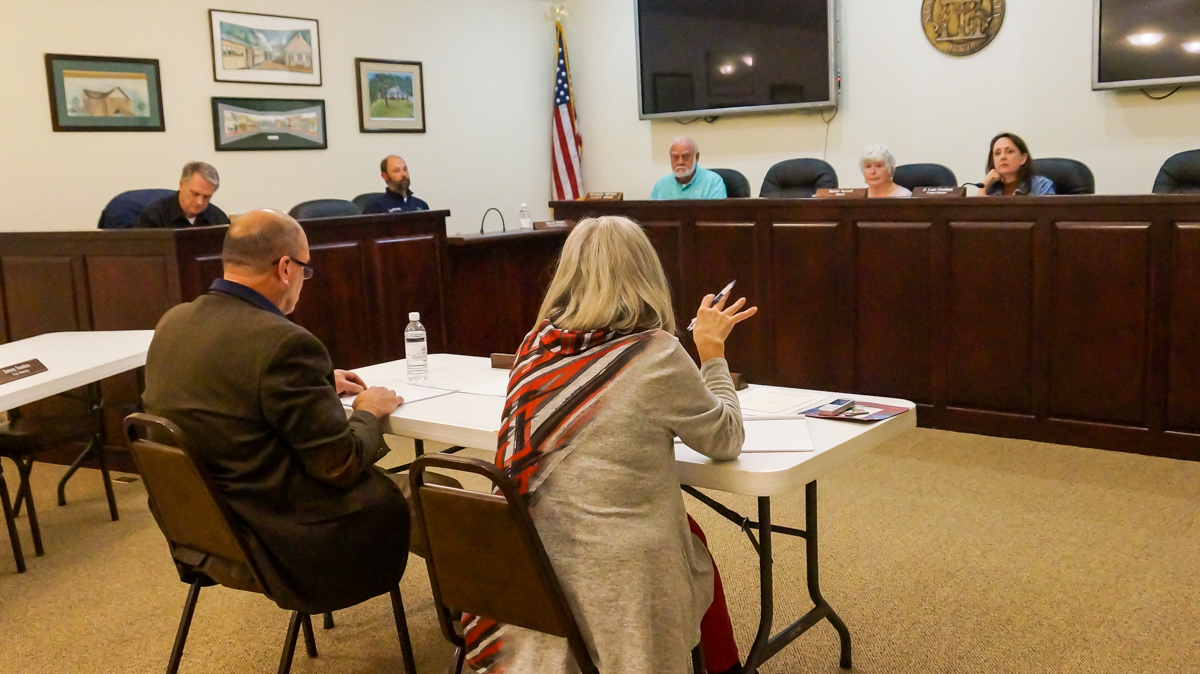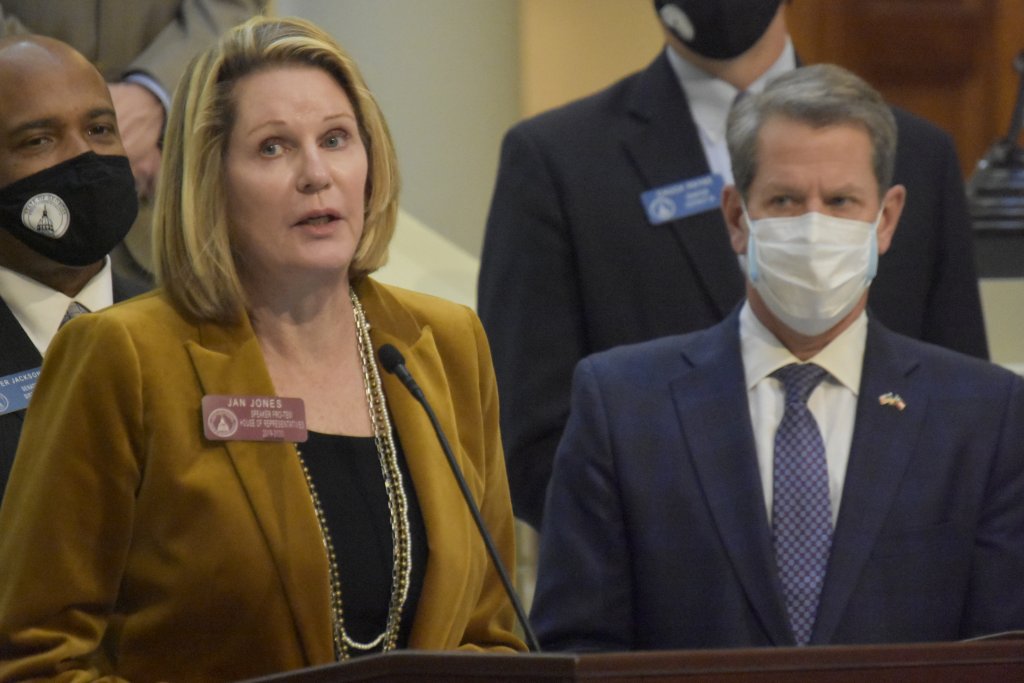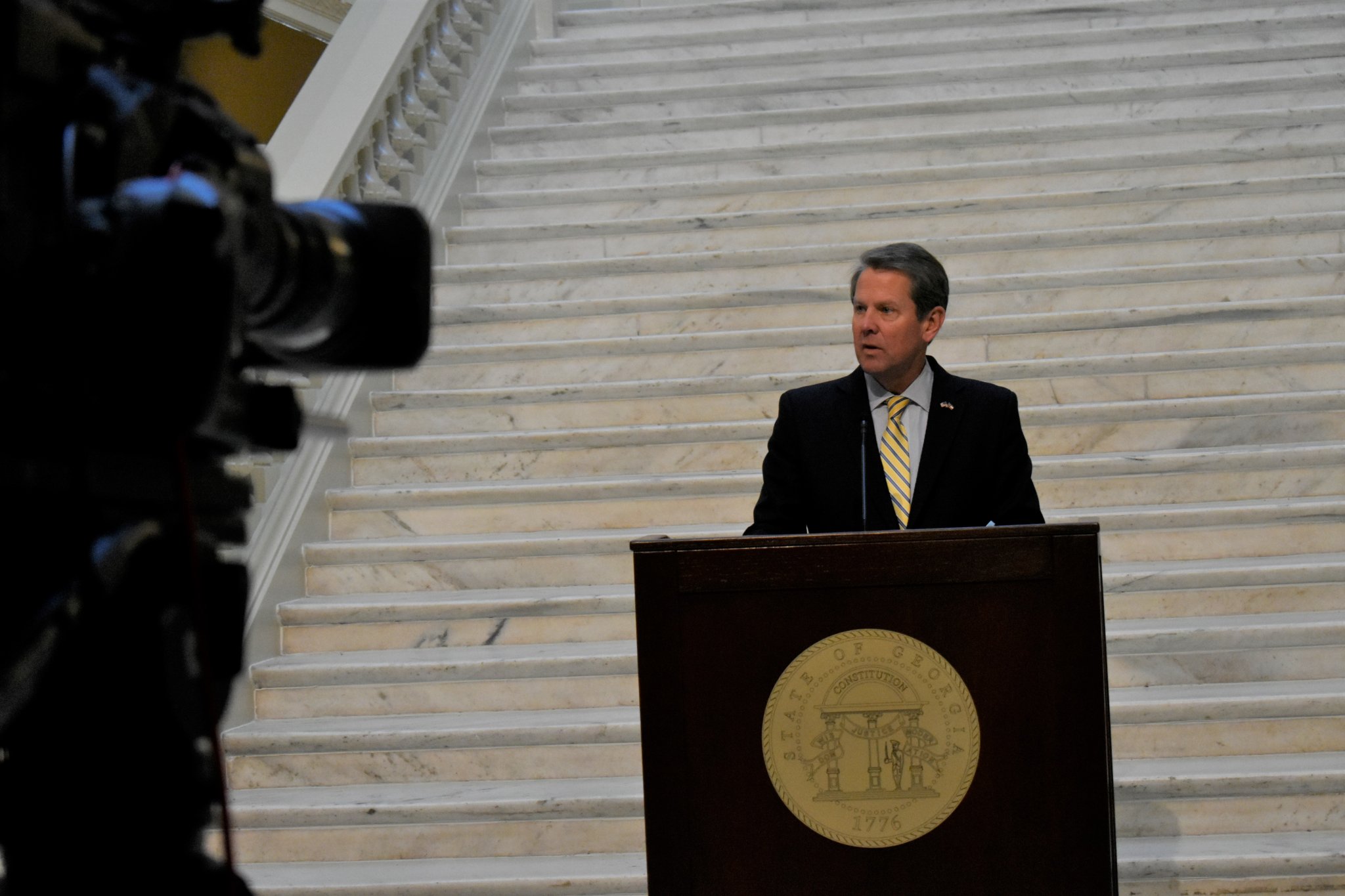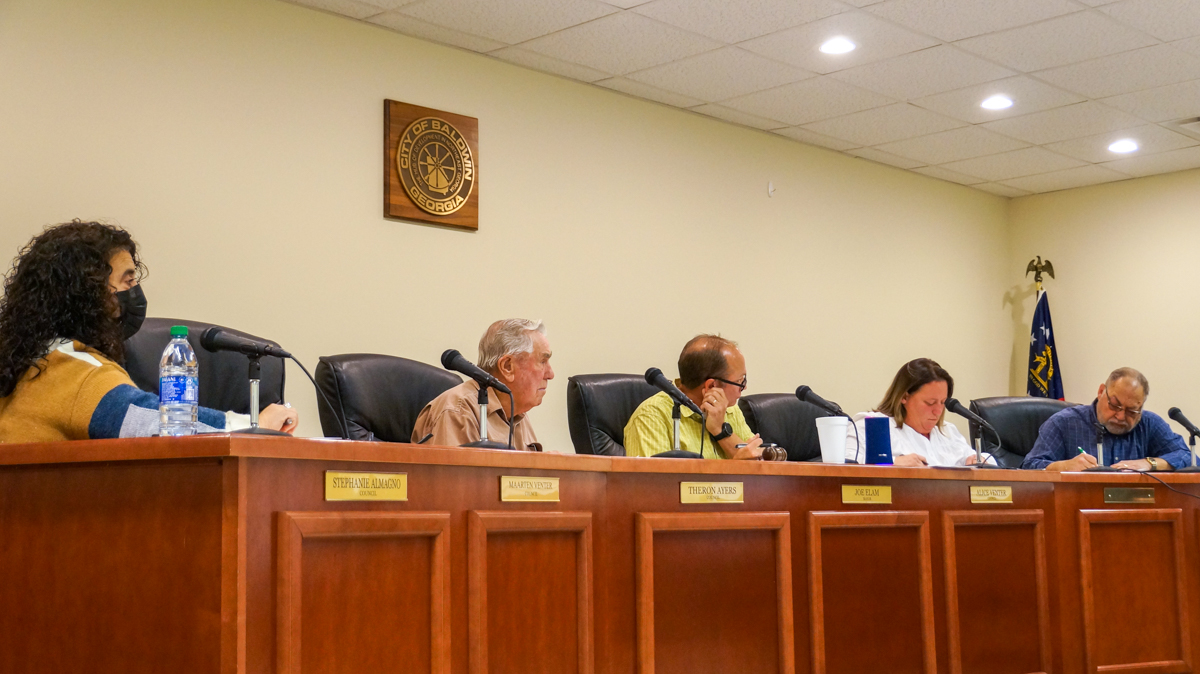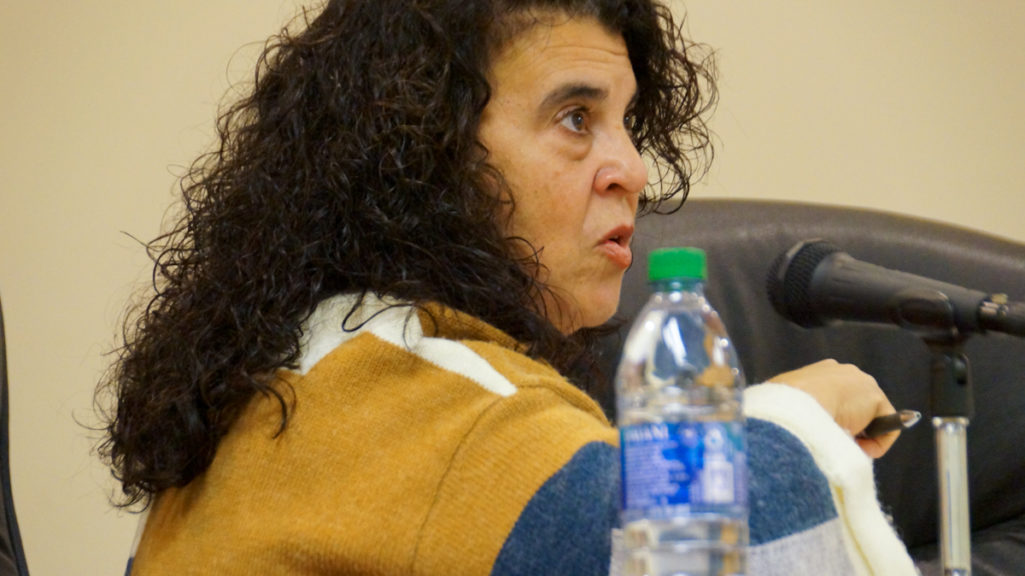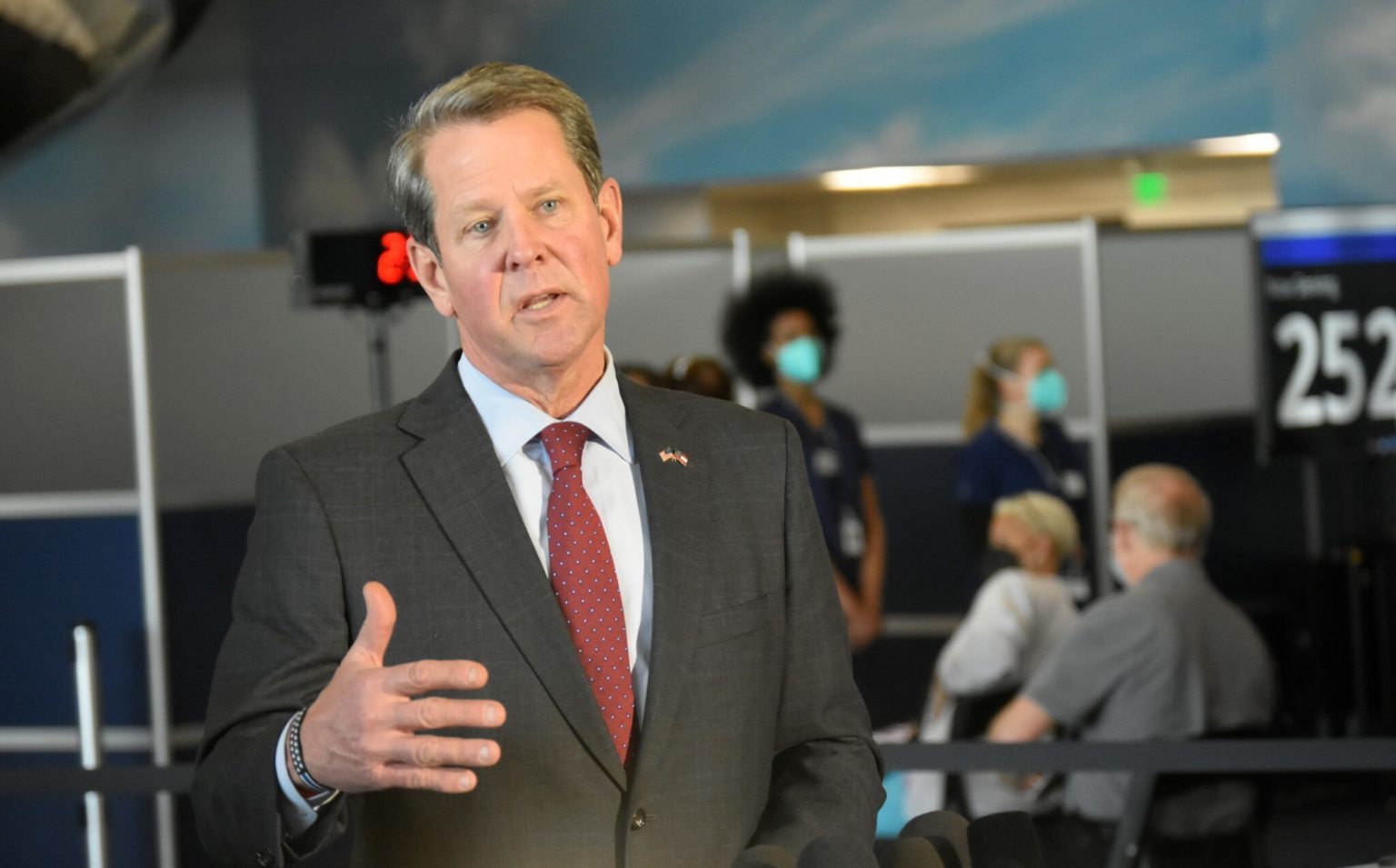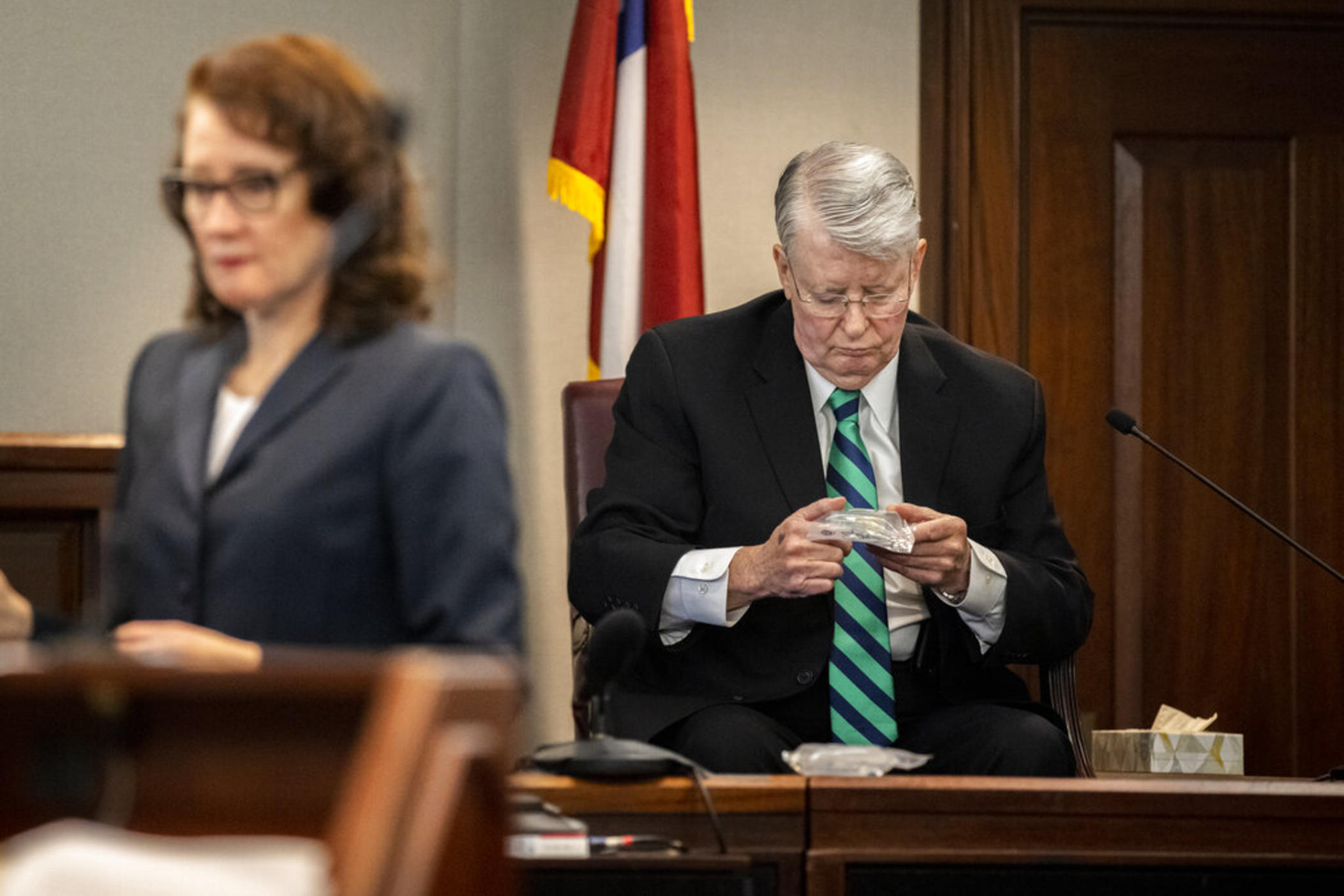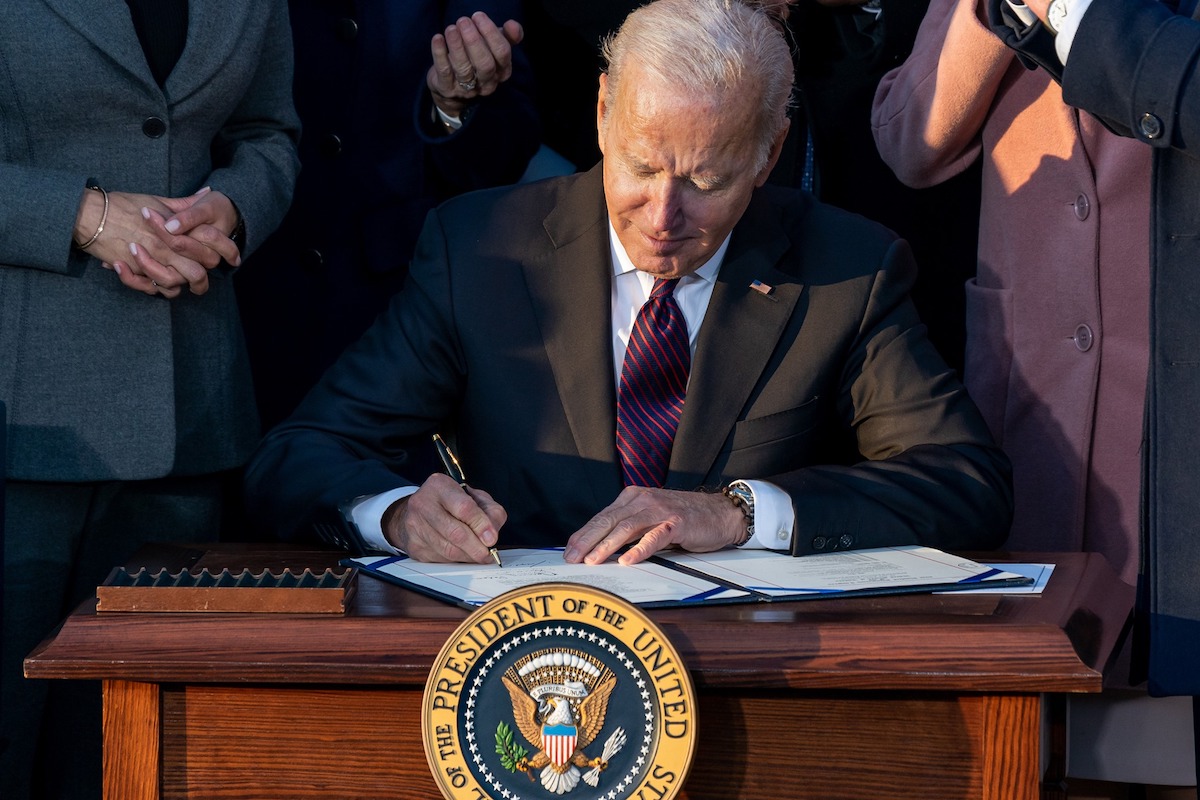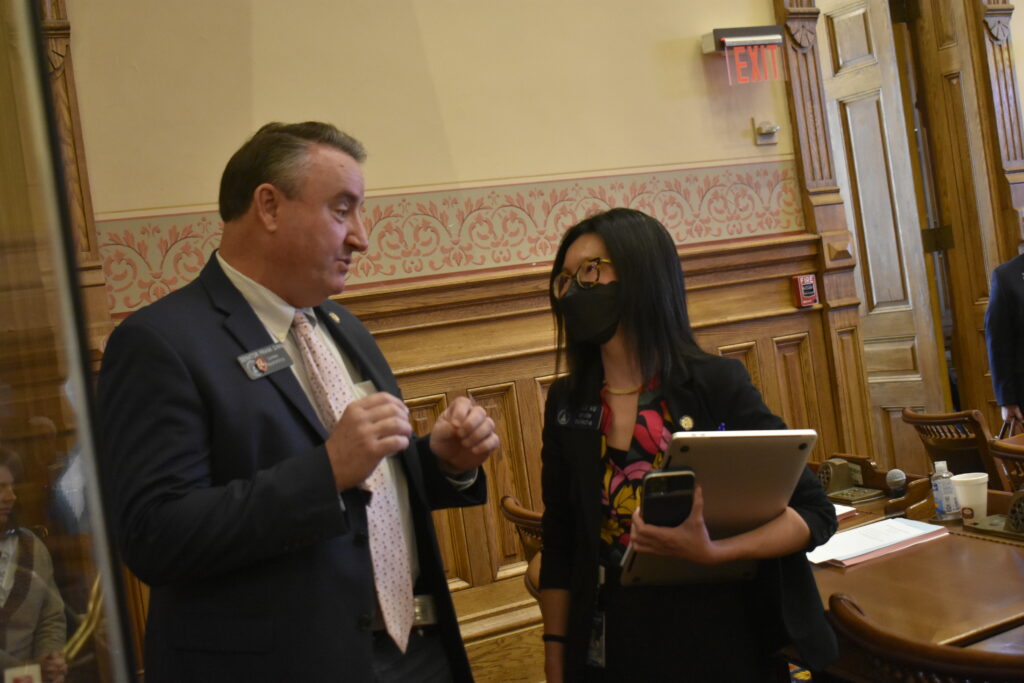WASHINGTON (GA Recorder) — President Joe Biden on Monday signed into law his $1.2 trillion bipartisan infrastructure bill during a ceremony at the White House packed with some 800 supporters, heralding what he said was a “truly consequential” spending bill that will improve Americans’ day-to-day lives.
But Democrats also emphasized that there is more to come—a $1.85 trillion social spending measure that still faces a close final vote in the U.S. House and major changes in the evenly divided Senate, where passage will have to come without GOP support.
Biden said the infrastructure legislation — backed by nearly all congressional Democrats, as well as 19 Senate Republicans and 13 House Republicans — is a signal that polarized public officials in Washington can come together to create jobs and solve long-lingering problems.
“My message to the American people is: America is moving again. And your life is going to change for the better,” Biden said during the South Lawn ceremony attended by federal and state legislators, governors, mayors, labor leaders, business leaders, and other supporters.
The signing marked a significant victory for the president’s economic agenda.
But the tougher step still looms, as Democrats attempt to rally their narrow majorities to pass the accompanying bill that would spend trillions more on new programs to expand access to child care and preschool and combat climate change.
Two senators critical to reaching agreement on the infrastructure plan, Democratic Sen. Kyrsten Sinema of Arizona and Republican Sen. Rob Portman of Ohio, joined Biden on stage for the bill signing and spoke ahead of the president’s remarks.
“Our legislation represents the substantive policy changes that some have said are no longer possible in today’s Senate,” Sinema said. “How many times have we heard that important policy can only happen on a party line? Our legislation proves the opposite.”
Portman also lauded the bipartisan work involved in approving the infrastructure measure, saying the deal became possible after the group of lawmakers involved in negotiations agreed to shrink the package down to physical infrastructure — and separate out Biden’s proposals for new social and climate-change programs.
“Mr. President … you and I will disagree on the tax and spending (provisions) in the other priority you have, the reconciliation bill, but I think we can both agree that this infrastructure investment shouldn’t be a one-time bipartisan accomplishment,” said Portman, who is retiring at the end of his term next year.
“This should be the beginning of a renewed effort to work together on big issues facing this country,” Portman added.
In his remarks before signing the bill, Biden praised Portman as well as Senate Minority Leader Mitch McConnell, (R-Ky.), who voted for the bill but did not attend Monday’s ceremony.
The new law, Biden said, is “proof that despite the cynics, Democrats and Republicans can come together and deliver results.”
The crowd of guests attending the signing ceremony, including many Georgians. Those included Georgia’s Democratic Sens. Jon Ossoff and Raphael Warnock, Democratic Reps. Carolyn Bourdeaux, Lucy McBath and Nikema Williams. Atlanta Mayor Keisha Lance Bottoms also joined the celebration.
Provisions of the new law include $110 billion to repair and rebuild roads and bridges; $90 billion for public transit; and $66 billion for passenger rail improvements.
Airports and ports also will see an infusion of federal funding, as will the country’s electric grid. More than $619 million is set aside for repairs and upgrades at Georgia’s airports.
Billions more will pay for electric vehicle charging stations and the purchase of buses and ferries that run on electricity. About $135 million is allotted to build an electric vehicle charging network across Georgia, and there are other grant opportunities to help boost the state’s charging infrastructure as more auto manufacturers roll out electric models.
As the president was signing the bill into law, some Georgia lawmakers were getting briefed Monday afternoon on how the measure will affect the state’s roads, bridges, ports and other infrastructure.
“It has a big emphasis of (electric vehicles), and we’re going to capitalize on that in Georgia,” Transportation Commissioner Russell McMurry said of the bill.
The federal measure also includes competitive grants, such as funding for projects reducing truck emissions at port facilities. But McMurry said Monday it was too early to outline which projects his agency will prioritize for federal funding, which will require a state match.
“The president signed it about 15 minutes ago, so we’re not quite there,” McMurry told lawmakers. The federal government will also have to develop rules and regulations for the new programs, which will take time.
Another $65 billion will go toward expanding access to broadband internet access across the country, a provision touted during the signing ceremony by Donneta Williams, president of the United Steelworkers Local 1025 at a Wilmington, N.C., plant producing optical fiber needed for broadband upgrades. At least $100 million of that will help provide broadband coverage across Georgia
“To paraphrase one of my favorite former vice presidents, it’s a big effing deal,” said Senate Majority Leader Chuck Schumer, (D-N.Y.)
Before heading to the White House, U.S. Sen. Jon Tester, a Montana Democrat who was among the 10 senators who wrote the bill, told reporters on a press call that the signing was the culmination of several months of negotiation.
“This is one of the best days I’ve had in Washington, D.C.,” Tester told reporters. “This is something that, for six months we met and we argued and we fought and we worked and in the end we got something that is the biggest non-emergency investment in infrastructure in our nation’s history.”
The legislation drew some bipartisan support in both chambers. But the 13 House Republicans who joined Democrats in support of the bill have faced backlash for that vote from constituents and some of their colleagues.
Rep. Marjorie Taylor Greene, a Rome-based Republican, tweeted that they were “traitors,” and posted their office phone numbers.
GOP opponents of the measure have decried it as part of a “spending spree” by Democrats.
“Tennesseans want real infrastructure investment, not frivolous left-wing programs that add to our nation’s debt,” Sen. Marsha Blackburn, (R-Tenn.), fumed in a press release ahead of the bill signing, slamming it as the “gateway” to the human infrastructure bill Democrats are still seeking to pass.
A half-dozen progressive House Democrats also opposed the physical infrastructure bill.
Those “no” votes included Reps. Ilhan Omar of Minnesota, Rashida Tlaib of Michigan and Cori Bush of Missouri, who wanted the $1.85 trillion social safety net and climate bill, known as “Build Back Better,” to be voted on at the same time as the infrastructure bill.
House Democrats have voted to set the terms of debate over the social reform package, and have aimed to hold a final vote as soon as this week.
“This is a great accomplishment, and there’s more to come,” House Speaker Nancy Pelosi, (D-Calif.), said at the White House.
Environmental advocacy groups and their allies in the Congressional Progressive Caucus also have sought to present the infrastructure bill and the $1.85 trillion social spending plan as a package deal.
“This is scene one of a two-act play,” Manish Bapna, the president and CEO of the Natural Resources Defense Council, said in a statement. “It sets the stage for Congress to pass the Build Back Better Act. That’s the centerpiece of President Biden’s strategy to drive equitable recovery with climate action in a moment the country urgently needs both.”
Asked about the social spending and climate bill, Tester stressed that it and the physical infrastructure bill are separate measures.
His priorities in the larger spending plan include making child care more accessible and affordable, providing federal housing funding and addressing climate change, he added.
During Monday’s ceremony, Vice President Kamala Harris also framed the two infrastructure bills as a set that is to be completed.
“This legislation, as significant as it is, as historic as it is, is part one of two,” Harris said. “Congress must also pass the Build Back Better Act.”
Georgia Recorder Deputy Editor Jill Nolin contributed to this report.

